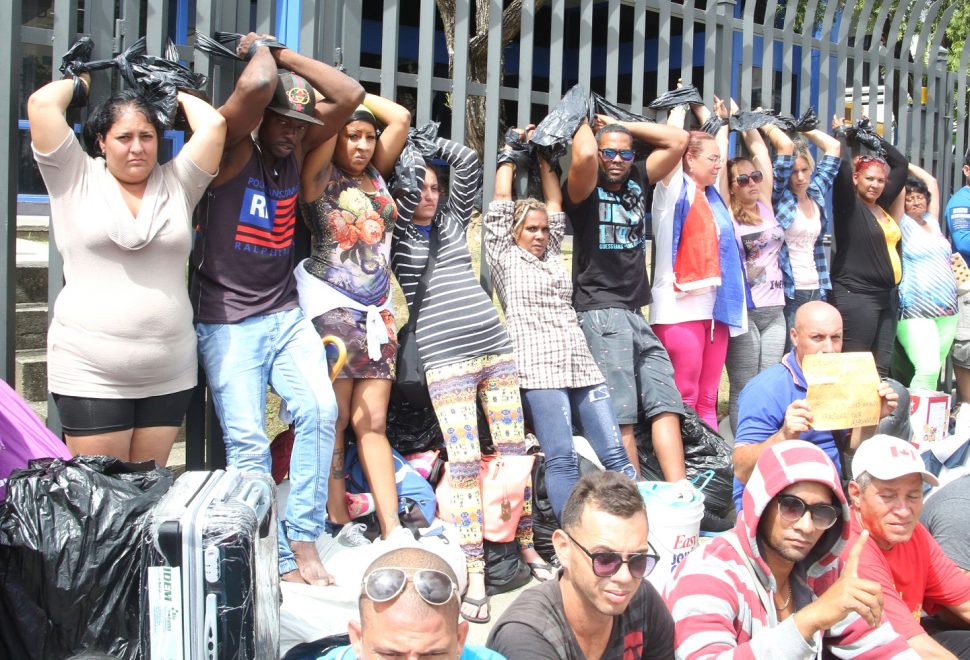(Trinidad Guardian) T&T is not ready to make international law a law here regarding people seeking asylum and refugee status as it just cannot afford too, especially with regards to housing and education.
Already there are 174,000 T&T citizens on the database of the Housing Development Corporation who are saying that they are not get housing fast enough “so if we add another 100,000 people to that how do we deliver that…how are you, the taxpayers, footing the bill.”
This was the major concern highlight by the Attorney General, Faris Al-Rawi during a media conference held at the Office of the Attorney General and Legal Affairs in Port-of-Spain.
Al-Rawi was responding to statements made by Amnesty International and attorney Dr Emir Crowne who both pointed out that the country has laws for refugees as a signatory to the 1951 Refugee Convention and its 1967 Protocol.
However, Al-Rawi reiterated that those submissions should be rejected out of hand.
He explained that T&T is a “dualistic” country and for international law to become law it must be enacted by an act of Parliament, similar with the Foreign Account Tax Compliance Act and Global Forum.
“How could you know that and then make a submission that signing the convention, not even ratifying it yet because there is a step to be taken, makes it law in T&T? That is to be rejected out of hand,” Al-Rawi said.
“We have no legislation in T&T. We have not ratified, we have acceded, not ratified. We have protocols that are exercised in conjunction with the UN agency and Living Waters and we treat with this in the way we are supposed too,” he added.
Al-Rawi said that morally speaking it is right to make sure people in distress are continuing not to be in distress but added that as a government, all bases must be checked.
“Where is the housing coming from? Where is the education coming from? How is it being paid for? But, you have to actually comply with the law,” Al-Rawi said.
Al-Rawi disclosed that the UNHCR is expected to give statistics on the inflow versus the outflow, “they accept applications, process it and if they approve they then make recommendations to host countries to move people out of T&T. That rate of flow out is 20 to 40 people maximum per year.”
Al-Rawi said that what was needed now is for conversations on what mechanisms can be put in place “to operationalize this law” which meant priority housing, education and healthcare.
On Wednesday, Amnesty International, who is looking on as to how T&T is dealing with the Cuban refugees’ issue said it is not too pleased.
Erika Guevara-Rosas, Americas director at Amnesty International said T&T must respect the fundamental human right to seek asylum and never return people to countries where their lives or freedom are at risk.
Amnesty International said T&T authorities must stop criminalizing the peaceful protest of migrants and refugees and find human rights-based solutions for them consistent with its existing obligations under international law.
Guevara-Rosas said Al-Rawi was “mistaken.” “The Attorney General is mistaken in his understanding of T&T’s obligations under international law. Having acceded to the 1951 Refugee Convention and its 1967 Protocol, the country is bound by international law to uphold the terms of these treaties. This means it must respect the fundamental human right to seek asylum and never return people to countries where their lives or freedom are at risk,” Guevara-Rosas.






